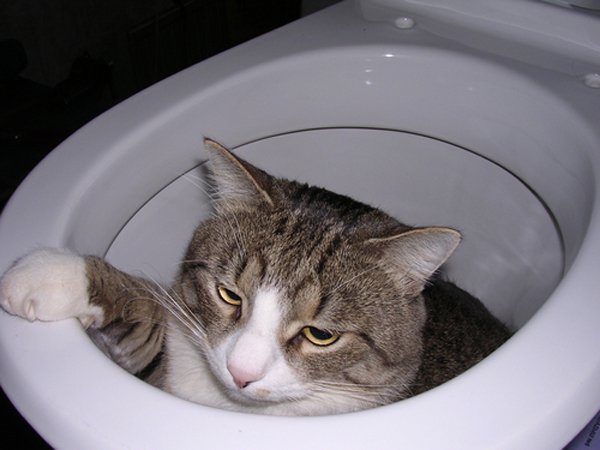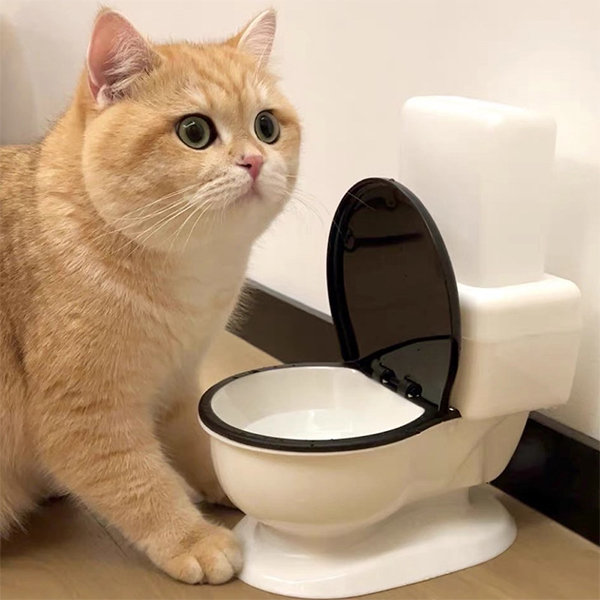Avoid Flush Cat Poop Down Your Toilet - Protect Your Plumbing Infrastructure
Avoid Flush Cat Poop Down Your Toilet - Protect Your Plumbing Infrastructure
Blog Article
In this article below you can find a good deal of good insights pertaining to Don’t flush cat feces down the toilet.

Introduction
As cat owners, it's important to bear in mind how we deal with our feline good friends' waste. While it might seem practical to flush pet cat poop down the commode, this practice can have destructive effects for both the atmosphere and human health.
Ecological Impact
Purging pet cat poop introduces dangerous microorganisms and bloodsuckers into the water, presenting a substantial danger to aquatic ecosystems. These contaminants can negatively influence marine life and concession water top quality.
Health Risks
Along with ecological worries, purging cat waste can additionally present wellness risks to people. Cat feces may contain Toxoplasma gondii, a bloodsucker that can trigger toxoplasmosis-- a possibly severe illness, specifically for expecting ladies and people with weakened immune systems.
Alternatives to Flushing
The good news is, there are more secure and extra liable means to deal with pet cat poop. Take into consideration the complying with alternatives:
1. Scoop and Dispose in Trash
The most usual method of taking care of cat poop is to scoop it right into an eco-friendly bag and toss it in the trash. Be sure to make use of a specialized clutter scoop and take care of the waste promptly.
2. Use Biodegradable Litter
Select eco-friendly feline trash made from products such as corn or wheat. These clutters are eco-friendly and can be securely dealt with in the trash.
3. Bury in the Yard
If you have a yard, consider burying cat waste in a designated location away from veggie yards and water sources. Make sure to dig deep sufficient to stop contamination of groundwater.
4. Set Up a Pet Waste Disposal System
Buy a pet dog garbage disposal system specifically made for cat waste. These systems utilize enzymes to break down the waste, reducing smell and environmental influence.
Conclusion
Liable family pet ownership prolongs beyond offering food and shelter-- it also includes proper waste management. By refraining from flushing feline poop down the commode and going with alternate disposal methods, we can minimize our ecological impact and protect human health and wellness.
Why Can’t I Flush Cat Poop?
It Spreads a Parasite
Cats are frequently infected with a parasite called toxoplasma gondii. The parasite causes an infection called toxoplasmosis. It is usually harmless to cats. The parasite only uses cat poop as a host for its eggs. Otherwise, the cat’s immune system usually keeps the infection at low enough levels to maintain its own health. But it does not stop the develop of eggs. These eggs are tiny and surprisingly tough. They may survive for a year before they begin to grow. But that’s the problem.
Our wastewater system is not designed to deal with toxoplasmosis eggs. Instead, most eggs will flush from your toilet into sewers and wastewater management plants. After the sewage is treated for many other harmful things in it, it is typically released into local rivers, lakes, or oceans. Here, the toxoplasmosis eggs can find new hosts, including starfish, crabs, otters, and many other wildlife. For many, this is a significant risk to their health. Toxoplasmosis can also end up infecting water sources that are important for agriculture, which means our deer, pigs, and sheep can get infected too.
Is There Risk to Humans?
There can be a risk to human life from flushing cat poop down the toilet. If you do so, the parasites from your cat’s poop can end up in shellfish, game animals, or livestock. If this meat is then served raw or undercooked, the people who eat it can get sick.
In fact, according to the CDC, 40 million people in the United States are infected with toxoplasma gondii. They get it from exposure to infected seafood, or from some kind of cat poop contamination, like drinking from a stream that is contaminated or touching anything that has come into contact with cat poop. That includes just cleaning a cat litter box.
Most people who get infected with these parasites will not develop any symptoms. However, for pregnant women or for those with compromised immune systems, the parasite can cause severe health problems.
How to Handle Cat Poop
The best way to handle cat poop is actually to clean the box more often. The eggs that the parasite sheds will not become active until one to five days after the cat poops. That means that if you clean daily, you’re much less likely to come into direct contact with infectious eggs.
That said, always dispose of cat poop in the garbage and not down the toilet. Wash your hands before and after you clean the litter box, and bring the bag of poop right outside to your garbage bins.
https://trenchlesssolutionsusa.com/why-cant-i-flush-cat-poop/

I stumbled upon that piece of writing about Don’t flush cat feces down the toilet when doing a search on the web. Do you know somebody else who is excited about the niche? Why not share it. We cherish reading our article about How to Dispose of Cat Poop and Litter Without Plastic Bags.
Contact Us Now Report this page